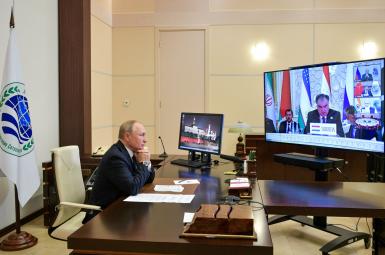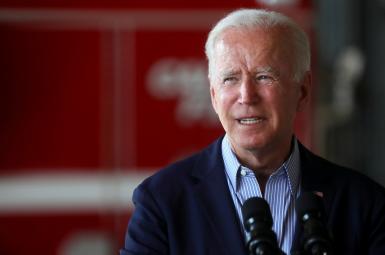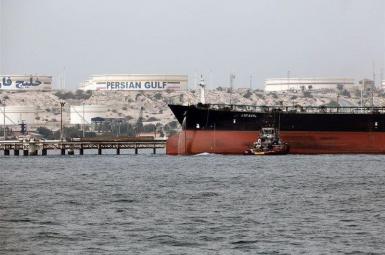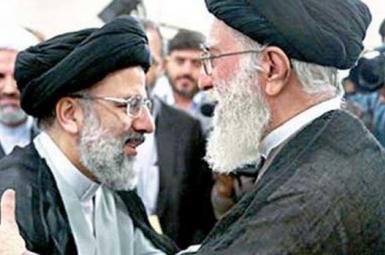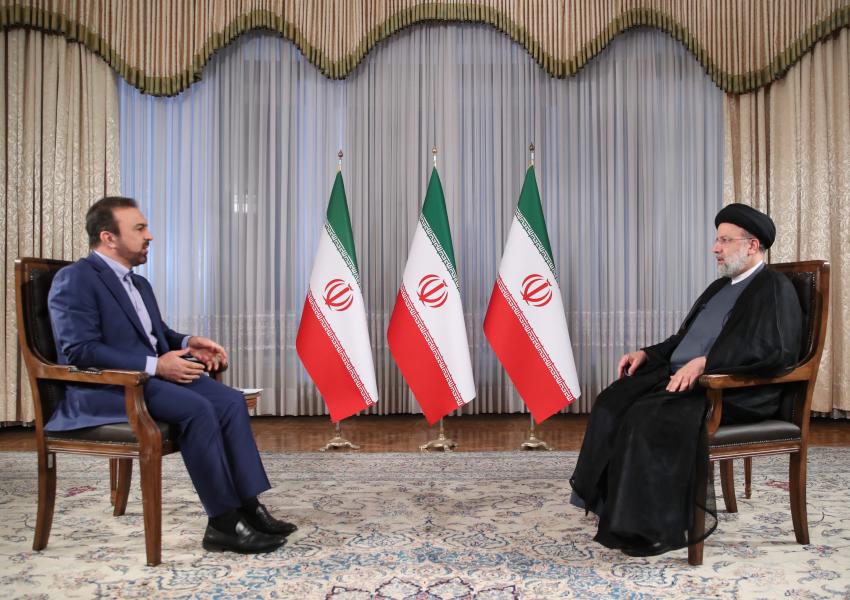
Iran Ready To Negotiate, But Not Under Pressure, Says Raisi
Iran's President Ebrahim Raisi (Raeesi) said in his first interview on national television, after taking office in August, that he believes in negotiations in a bid to lift the "oppressive" sanctions on Iran, but he will not agree to negotiate under pressure.
Indirect negotiations between Iran and the United States over reviving the 2015 nuclear deal with world powers, were suspended more than two months ago, pending the transition from the Rouhani administration to the Raisi government. The United States and its European allies have been putting pressure on Tehran not to further delay the talks.
Speaking on Iran's national television Saturday evening, the new president said that negotiations should continue without pressure on Iran and in an atmosphere of mutual respect without threatening Tehran.
Raisi also answered questions about his government's position regarding the developments in Afghanistan, saying that Iran does not like to see Afghanistan in trouble and that the neighboring country's security matters to Tehran.
In the first clear articulation of Iran’s position about the Taliban takeover, Raisi said that Afghanistan should be run by a broad-based government represented by all groups and that the country should be run by a government formed based on people's vote.
While his position about international matters was quite clear, what Raisi said about Iran's domestic politics needed to be deciphered. When he was asked about the promises he made during the election, he said he wishes to talk about projects such as building one million homes a year once it is accomplished. However, when trying to elaborate on the current state of his projects, he shifted to making more promises to review their status in the future.
However, he was clear enough about two matters. When he was asked about the ambiguity as who is running his cabinet's economic team, he said "It is understood that the First Vice President {Mohammad Mokhber] will be in charge," adding that "this is what the law calls for."
Concerns about multiple senior officials in Raisi's economic team emerged when he appointed former IRGC commander Mohsen Rezaei as his Vice President for Economic Affairs. Rezaei is known for his outlandish economic presumptions, but he has never had an executive position in the government particularly in the economy.
The clear statement that Mokhber will be in charge further revealed that Supreme Leader Ali Khamenei's office, where Mokhber was a senior official, has the upper hand in the Raisi administration.
Elsewhere in the interview, he mildly criticized the Rouhanii administration for ignoring its responsibility during the final months of his government, without naming the former president.
Raisi looked more self-confident and did not stutter during the televised interview and appeared to be in control after months of making hurried, sometimes uncalculated statements and often shouting unnecessarily in front of TV cameras.
